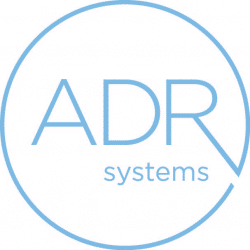Provided here is an article written by Hon. Lisa R. Curcio, (Ret.), senior mediator and arbitrator at ADR Systems, as a summary of a 2022 presentation about prevailing party attorneys’ fees that she gave with Dan Rosenberg, a principal with Much Shelist, P.C., for the Society of Illinois Construction Attorneys. Their presentation addressed the law that applies to contractual provisions for attorneys’ fees and practical drafting considerations when including such a provision in construction contracts.
………..
Illinois follows the American Rule where prevailing party attorney’s fees are concerned. Unsuccessful parties in litigation are generally not responsible for the other party’s fees unless a contractual or statutory provision for the award of such fees exists. If a contract contains a provision for awarding attorneys’ fees to a successful party, it will be strictly construed and enforced at the discretion of the circuit court.
Attorneys can use contractual fee-shifting provisions as a sword and as a shield in litigation and when parties agree to mediate disputes. In some cases, fees and costs can be as much as or greater than the amount of the claims. Even so, “prevailing party” fee provisions usually lack specificity, such as this clause found in many construction contracts: “In the event of any litigation arising hereunder, the unsuccessful party shall pay the reasonable attorney’s fees of the prevailing party.”
Such broad clauses leave a great deal to interpretation by the judge or arbitrator. Often, the result is an extension of the litigation and increased cost to the parties. Particularly in multi-issue, multi-party construction disputes, deciding which party — if any — is the prevailing party is not clear. Parties win on some issues and lose on others.
With parties both winning and losing, the judge or arbitrator can decide that there is no prevailing party. If a judge or arbitrator decides that there is a prevailing party even though that party recovered much less than it sought, should the judge or arbitrator reduce recoverable fees and costs solely on that basis? When there are multiple claims for relief and multiple recoveries, the judge or arbitrator must weigh the relative value and complexity of the issues to decide whether one or more parties prevailed on a significant issue.
Faced with the prospect that a standard “prevailing party” provision may cause a client to incur even more time and money litigating the question of fees, what is a good construction attorney to do when drafting the contract?
Attorneys should first ask whether including a fee-shifting clause will solve a problem. In litigation and dispute resolution, clients need clear contract provisions to help them analyze the risk of proceeding with claims. The goals of fee-shifting provisions should include protecting your client from unnecessary litigation and expense, helping to resolve disputes, and making litigation more predictable. Drafting clauses with reasonable specificity helps clients achieve those goals.
Once attorneys determine that a fee-shifting clause is the right path, they can reduce uncertainty in the event of a dispute by incorporating the following into fee-shifting clauses:
- Define “prevailing party.” A judge or arbitrator generally must apply that definition. For example, the prevailing party is a party that recovers at least a certain percentage of its claim.
- Make the fee shifting mandatory. The trial court or arbitrator generally has the discretion to determine whether to award attorneys’ fees. If the contract makes it mandatory, that discretion will be limited.
- Place limits on recoverable fees and costs. Other considerations that make outcomes more certain can include limits on the amounts of recoverable fees and costs. Attorneys can condition an award of attorneys’ on recovering more than a written settlement offer made prior to trial or arbitration.
As in all contract drafting and negotiating, finding the right balance between protecting the client’s interests and reaching an agreement with other parties is complicated. An effective construction attorney will take time to determine whether a fee-shifting provision should be part of the contract. Once deciding to include a fee-shifting clause, attorneys should start drafting with the above considerations in mind to protect the client from unnecessary litigation and expense, help to resolve disputes and make litigation more predictable.
…………
Hon. Lisa R. Curcio, (Ret.) brings an abundance of real-world experience – real estate, business and banking — to her mediation and arbitration practice. She spent 15 years as a Chancery Judge, presiding over mechanics liens, construction contracts and construction defect cases. Judge Curcio is regarded as an energetic and pragmatic neutral who helps parties construct suitable solutions to their disputes.
Request Judge Curcio’s Availability
ADR Systems, It’s Settled. ®




